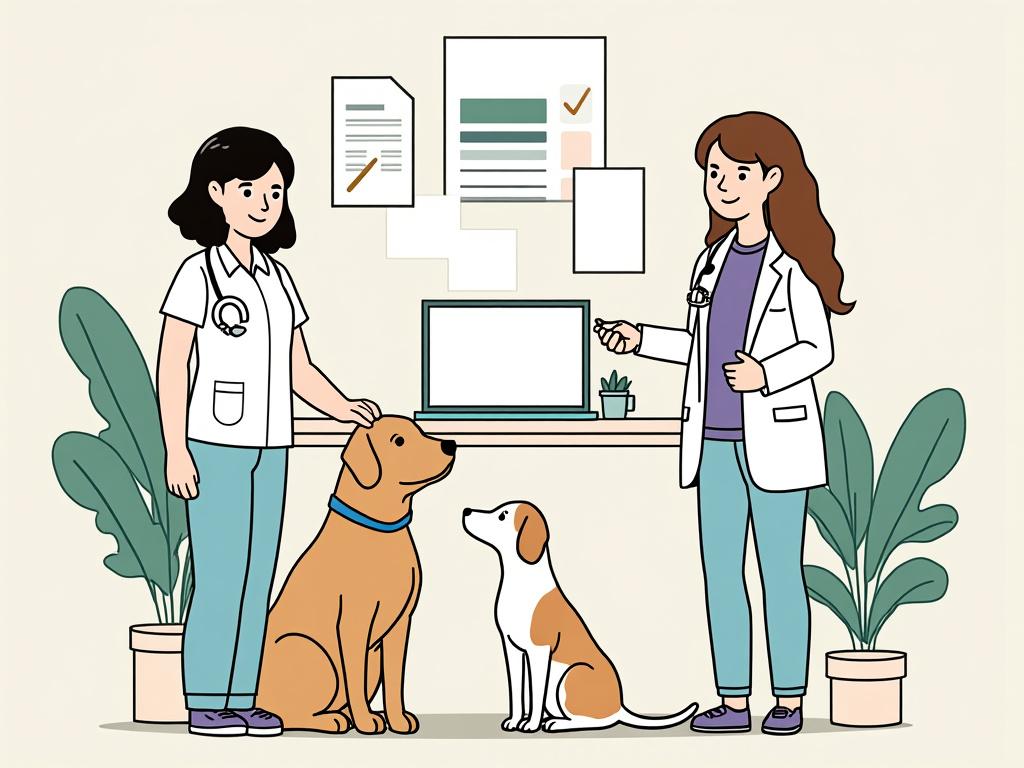
Veterinary Services in Greece: Your Complete Guide to Pet Healthcare Excellence
Reading time: 12 minutes
Table of Contents
- Understanding Greece’s Veterinary Landscape
- Essential Veterinary Services Available
- Finding the Right Veterinarian
- Cost Analysis and Insurance Options
- Emergency Care and After-Hours Services
- Special Considerations for Expats and Property Owners
- Navigating Common Challenges
- Your Pet Healthcare Roadmap in Greece
- Frequently Asked Questions
Understanding Greece’s Veterinary Landscape
Ever wondered what it’s like navigating pet healthcare in the cradle of Western civilization? Greece’s veterinary sector has evolved dramatically over the past decade, transforming from a primarily agricultural focus to comprehensive companion animal care that rivals European standards.
Here’s the straight talk: Greece operates under EU veterinary regulations, meaning your pet receives care meeting stringent European standards. The Hellenic Veterinary Medical Society oversees approximately **2,800 practicing veterinarians** across the country, with roughly 60% specializing in small animal care.
Key Veterinary Insights:
- Modern facilities concentrated in urban areas
- Growing specialization in exotic and emergency care
- Increasing integration of digital health records
- Competitive pricing compared to Western European countries
The veterinary education system in Greece produces highly qualified professionals through institutions like the Aristotle University of Thessaloniki, which has trained veterinarians for over 40 years. Dr. Maria Konstantinidou, president of the Panhellenic Veterinary Association, notes: *”Greek veterinary medicine has embraced international best practices while maintaining our tradition of compassionate animal care.”*
Essential Veterinary Services Available
Routine Healthcare Services
Greek veterinary clinics offer comprehensive preventive care that forms the backbone of pet health management. Annual vaccinations follow the European vaccination protocol, with core vaccines including rabies, distemper, and parvovirus for dogs, and panleukopenia, calicivirus, and rhinotracheitis for cats.
**Preventive Care Timeline:**
- 8-12 weeks: First vaccination series
- 12-16 weeks: Second vaccination and microchipping
- 6 months: Spaying/neutering consultation
- Annual: Health checks and vaccination boosters
Microchipping is mandatory for dogs in Greece, with registration in the national database costing approximately €15-25. This requirement extends to cats in many municipalities, particularly in Athens and Thessaloniki.
Specialized Medical Services
The specialization trend has brought advanced services to Greek pet owners. Orthopedic surgery, cardiology, and oncology services are increasingly available, particularly in major cities. The Mediterranean climate creates specific health challenges—tick-borne diseases like ehrlichiosis and babesiosis are common, making specialized parasitology expertise crucial.
Specialty Services Comparison:
Finding the Right Veterinarian
Research and Recommendation Strategies
Quick Scenario: Imagine you’ve just moved to Crete with your German Shepherd. How do you find a veterinarian who understands both the breed’s specific needs and local health challenges? Let’s dive deep and turn this challenge into a strategic opportunity.
The Greek veterinary community operates on strong referral networks. **Word-of-mouth recommendations** remain the most reliable method for finding quality care. Local Facebook groups, particularly expat communities, provide invaluable insights into veterinary experiences.
Practical Search Strategy:
- Digital Research: Use Google Maps to identify nearby clinics and check reviews
- Community Engagement: Join local pet owner groups on social media
- Initial Consultations: Schedule meet-and-greet appointments
- Facility Tours: Request to see treatment areas and equipment
Dr. Andreas Papadopoulos from Athens Veterinary Center explains: *”We encourage pet owners to visit our facilities before emergencies arise. This builds trust and ensures we understand each animal’s specific needs and medical history.”*
Evaluating Veterinary Facilities
Modern Greek veterinary clinics should meet specific standards. Look for facilities with digital radiography, ultrasound capabilities, and in-house laboratory services. The best clinics maintain electronic medical records and offer online appointment scheduling.
**Red flags to avoid:**
- Reluctance to show facilities or discuss qualifications
- Lack of emergency contact procedures
- Pressure for unnecessary procedures
- Poor hygiene standards in waiting or treatment areas
Cost Analysis and Insurance Options
Veterinary costs in Greece remain significantly lower than most Western European countries while maintaining comparable quality standards. A routine consultation typically costs €25-40, while emergency visits range from €60-100.
| Service Type | Average Cost (€) | Emergency Surcharge | Seasonal Variation |
|---|---|---|---|
| Routine Consultation | 25-40 | +50-100% | Minimal |
| Vaccination Package | 45-65 | N/A | 10-15% summer increase |
| Spay/Neuter Surgery | 120-200 | +30-50% | Lower in winter |
| Dental Cleaning | 150-250 | +25% | Stable year-round |
| Emergency Surgery | 300-800 | Base rate | Higher in tourist season |
Pet insurance is emerging in Greece, though adoption remains limited. International providers like Agria and local companies offer policies starting around €15 monthly for basic coverage. However, many Greek pet owners prefer establishing dedicated savings accounts for veterinary expenses.
Emergency Care and After-Hours Services
Greece’s emergency veterinary network has expanded significantly, particularly in tourist areas where seasonal pet populations surge. Athens and Thessaloniki offer 24/7 emergency services, while smaller cities typically provide on-call coverage.
Case Study: Maria, a British expat living in Mykonos, faced a crisis when her cat developed urinary blockage on a Sunday evening. The island’s emergency veterinary service, coordinated through a WhatsApp group of local vets, provided immediate care. This collaborative approach is typical of Greek veterinary communities, where practitioners share emergency responsibilities.
Emergency Preparedness Checklist
Well, here’s the straight talk: Emergency preparedness isn’t about paranoia—it’s about strategic peace of mind.
- Contact Information: Save emergency vet numbers in your phone
- Location Knowledge: Know routes to nearest emergency facilities
- Medical Records: Keep vaccination records and medical history accessible
- Transport Ready: Maintain pet carriers in good condition
- Financial Preparation: Understand payment policies for emergency care
Special Considerations for Expats and Property Owners
For those investing in property for sale greece, understanding local veterinary services becomes crucial for long-term planning. Many expats discover that Greek veterinary care exceeds their expectations, both in quality and affordability.
**Import Requirements for Pets:**
EU pet passport holders face minimal bureaucracy when relocating to Greece. Non-EU animals require health certificates, rabies vaccination records, and sometimes quarantine periods. The process typically takes 4-6 weeks for proper documentation.
Greece’s growing expat community has influenced veterinary services. Many practitioners in popular expat areas speak English, and some clinics cater specifically to international residents. This trend is particularly evident in Crete, the Peloponnese, and island communities.
Building Relationships with Local Veterinarians
Greek culture values personal relationships, and this extends to veterinary care. Taking time to build rapport with your chosen veterinarian pays dividends in personalized attention and emergency availability.
Pro Tip: The right veterinary relationship isn’t just about medical care—it’s about creating a support network that understands your pet’s unique needs and your lifestyle as an expat.
Navigating Common Challenges
Language Barriers and Communication
While many Greek veterinarians speak English, technical medical discussions can become complex. Consider these strategies:
- Learn basic Greek pet-related vocabulary
- Use translation apps for complex discussions
- Request written treatment plans and medication instructions
- Bring a Greek-speaking friend for important appointments
Seasonal Service Variations
Tourist seasons significantly impact veterinary availability in popular destinations. Summer months see increased demand and higher prices, while winter offers better availability and sometimes reduced costs. Plan routine procedures during off-season periods when possible.
**Practical Challenge Solution:** Schedule major procedures like spaying or dental work during shoulder seasons (May or October) for optimal availability and pricing.
Your Pet Healthcare Roadmap in Greece
Ready to transform complexity into confident pet ownership? Here’s your strategic action plan for establishing comprehensive veterinary care in Greece:
Immediate Actions (First 30 Days):
- Research and Connect: Identify 2-3 local veterinary clinics and schedule introductory visits
- Documentation Setup: Organize pet medical records and ensure vaccination schedules are current
- Emergency Preparation: Program emergency veterinary contacts and map routes to 24-hour facilities
Establish Ongoing Care (30-90 Days):
- Choose Your Primary Veterinarian: Select based on facility quality, communication, and proximity
- Schedule Preventive Care: Book annual check-ups and establish vaccination schedules
- Build Community Connections: Join local pet owner groups for ongoing support and recommendations
Long-term Success Strategies:
- Maintain relationships with both primary and emergency veterinary services
- Stay informed about seasonal health challenges specific to your region
- Consider pet insurance or establish dedicated healthcare savings
The Greek veterinary landscape offers exceptional value and quality for dedicated pet owners. As the country continues modernizing its animal healthcare infrastructure, early adopters benefit from establishing relationships with progressive practitioners who combine traditional Greek hospitality with cutting-edge veterinary medicine.
Your next step: Which veterinary clinic will you visit first to begin building your pet’s healthcare foundation in Greece?
Frequently Asked Questions
Do Greek veterinarians accept international pet insurance?
Most Greek veterinarians operate on a pay-at-service model, requiring upfront payment with subsequent insurance reimbursement. Some larger clinics in Athens and Thessaloniki have arrangements with international insurance providers, but this remains uncommon. Always verify payment policies before treatment and keep detailed receipts for insurance claims.
What vaccinations are legally required for pets in Greece?
Rabies vaccination is mandatory for all dogs and cats over 12 weeks old, with boosters required annually or every three years depending on vaccine type. While other core vaccines aren’t legally mandated, they’re strongly recommended for health and boarding purposes. Microchipping is compulsory for dogs and increasingly required for cats in major municipalities.
How do I handle veterinary emergencies on Greek islands?
Island veterinary care varies significantly by location and season. Popular tourist islands like Santorini, Mykonos, and Crete maintain emergency services year-round, while smaller islands may have limited coverage. Contact information for emergency services is typically available through local municipalities, tourist information centers, or established through networks of island veterinarians who share on-call responsibilities.

Article reviewed by Charlotte Ellsworth, Commercial Real Estate Developer | Transforming Urban Landscapes, on June 6, 2025


